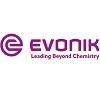
Content sponsored by:
Evonik Animal Nutrition
Effect of Supplemental Dl-met Above Requirement on Performance and Serum Concentration of Amino Acids in Heat Stressed Pigs
Published: February 27, 2021
Source : J. Caroline González-Vega – Evonik Operations GmbH. John K. Htoo, n/a – Evonik Operations GmbH,
AM
Adriana Morales Trejo, n/a
Professor,
UABC,
MEXICALI, Baja California.
Verónica Sánchez, n/a
Graduate student,
UABC,
Mexicali, Baja California.
Bayron Pérez, n/a,
Graduate student,
UABC,
Mexicali, Baja California.
Lucero R. Camacho, n/a
Professor,
UABC,
MEXICALI, Baja California.
The intestinal morphology can be compromised in pigs when exposed to heat stress (HS), partly due to increased production of reactive-oxygen species. Because methionine (Met) functions as intracellular antioxidant, requirement of Met may be increased in HS-pigs. The effect of dietary supplementation with DL-Met above requirement on performance and serum concentration (SC) of free AA in HS-pigs was evaluated. A basal wheat-soybean meal diet was formulated to meet 100% Met requirement with the other indispensable AA exceeding at least 20% their requirement. Sixty individually housed pigs (23.0 ± 2.4 kg BW, 12 pigs/treatment) were randomly assigned to 5 treatments: TN100, thermal-neutral (22.7 °C) housed pigs fed the basal diet; HS100, HS120, HS140, HS160; HS pigs (29.6 to 39.4°C) fed the basal diet supplemented with DL-Met to contain 0, 20, 40, and 60% DL-Met above the requirement, respectively. Pigs had free access to feed and water during the 21-d trial. Blood samples were collected on d18 to analyze the absorptive AA-SC. The effect of ambient temperature (HS100 vs. TN100), as well as the linear and quadratic effects of increasing Met levels in the diets for HS pigs were analyzed. The performance results for the TN100, HS100, HS120, HS140, HS160 pigs were: Average daily gain (ADG), 728, 612, 720, 716, 719 g/d; average daily feed intake, 1.40, 1.34, 1.30, 1.30, 1.29 kg/d; gain:feed, 0.522, 0.474, 0.569, 0.563, 0.562, respectively. The ADG reduced (P < 0.01) in HS100 compared with TN100 pigs, but linearly increased in HS-pigs, besides gain:feed (P ≤ 0.05), in response to DL-Met supplementation. The SC of Ile, Leu, Lys, Phe, and Val were higher in HS100 pigs than in TN100 pigs (P < 0.05). Graded supplemental DL-Met in diets for HS-pigs linearly decreased SC of Ile, Leu, and Val (P < 0.05), tended to decrease His, Lys, and Thr (P < 0.10), and increased Met (P < 0.01). In conclusion, HS had negative effect on weight gain; however, it was ameliorated by adding 20% Met above the requirement.
Related topics:
Authors:

Influencers who recommended :
Balachandar JayaramanRecommend
Comment
Share

Would you like to discuss another topic? Create a new post to engage with experts in the community.




